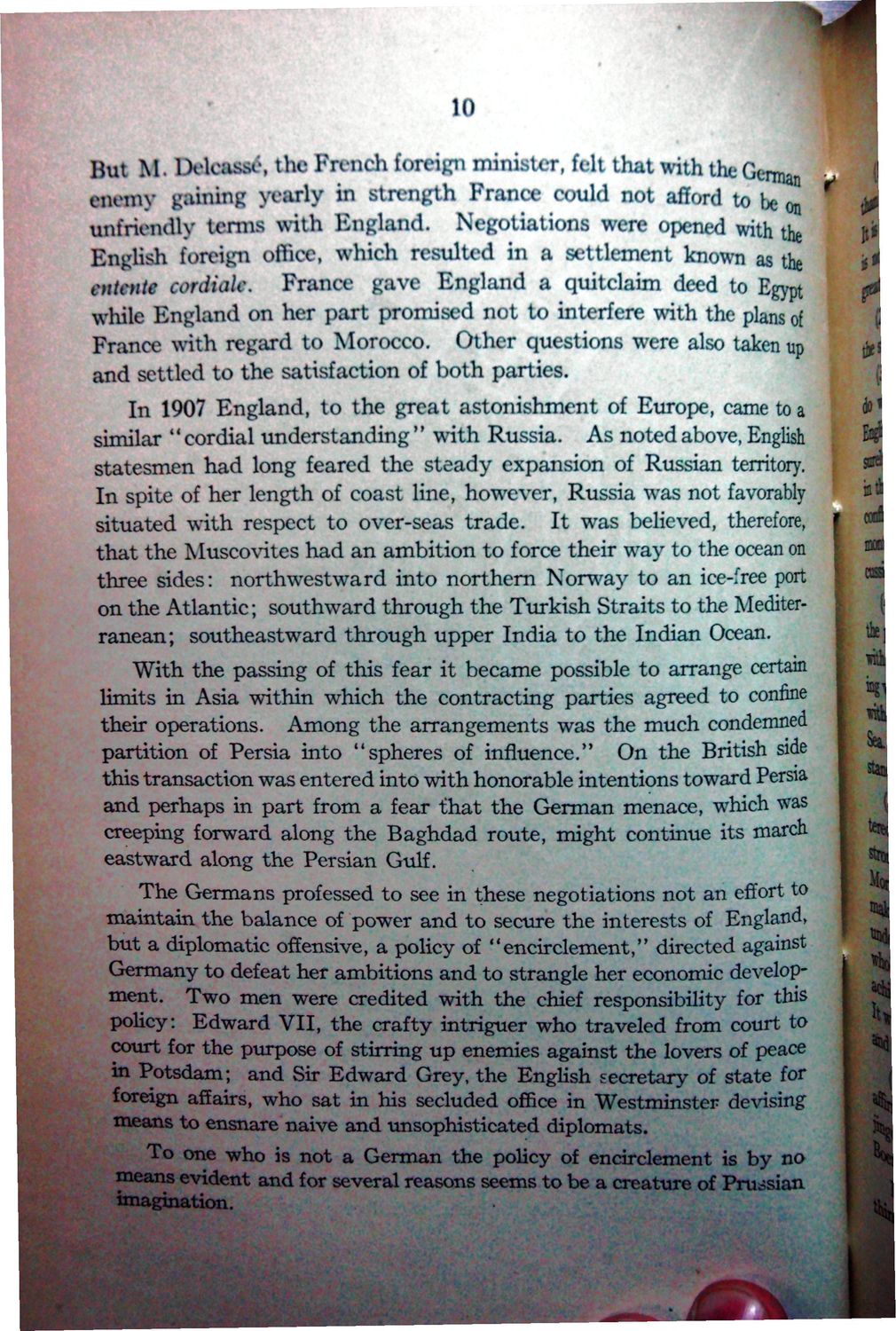| |
| |
Caption: War Publications - WWI Compilation 1923 - Article 15
This is a reduced-resolution page image for fast online browsing.

EXTRACTED TEXT FROM PAGE:
• • 10 But M • DllMWrfi the French foreign minister, felt that with the Germ* enemy gaining yearly in strength France could not afford to be Q. unfriendly terms with England. Negotiations were opened with the English foreign office, which resulted in a settlement known as the entente cordiale. France gave England a quitclaim deed to Egypt while England on her part promised not to interfere with the plans o f France with regard to Morocco. Other questions were also taken up and settled to the satisfaction of both parties. In 1907 England, to the great astonishment of Europe, came to a il similar cordial understanding " with Russia. As noted above, English statesmen had long feared the steady expansion of Russian territory. In spite of her length of coast line, however, Russia was not favorably situated with respect to over-seas trade. It was believed, therefore, that the Muscovites had an ambition to force their way to the ocean on three sides: northwestward into northern Norway to an ice-free port on the Atlantic; southward through the Turkish Straits to the Mediterranean; southeastward through upper India to the Indian Ocean. # With the passing of this fear it became possible to arrange certain limits in Asia within which the contracting parties agreed to confine their operations. Among the arrangements was the much condemned partition of Persia into "spheres of influence." On the British side this transaction was entered into with honorable intentions toward Persia and perhaps in part from a fear that the German menace, which was creeping forward along the Baghdad route, might continue its march eastward along the Persian Gulf. The Germans professed to see in these negotiations not an effort to maintain the balance of power and to secure the interests of England, but a diplomatic offensive, a policy of " encirclement/' directed against Germany to defeat her ambitions and to strangle her economic development. Two men were credited with the chief responsibility for this policy: Edward VII, the crafty intriguer who traveled from court to court for the purpose of stirring up enemies against the lovers of peace in Potsdam; and Sir Edward Grey, the English secretary of state for foreign affairs, who sat in his secluded office in Westminster devising means to ensnare naive and unsophisticated diplomats. To one who is not a German the policy of encirclement is by no means evident and for several reasons seems to be a creature of Prussian imagination.
| |